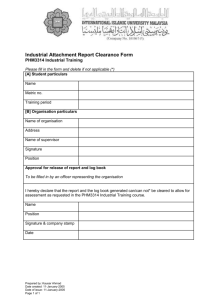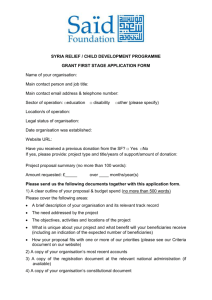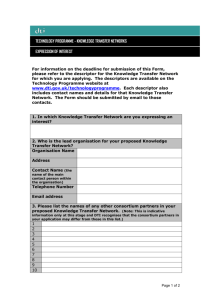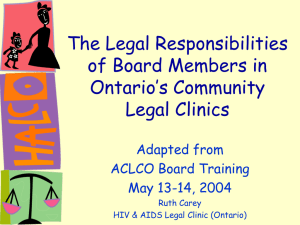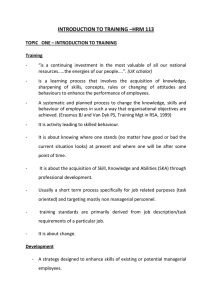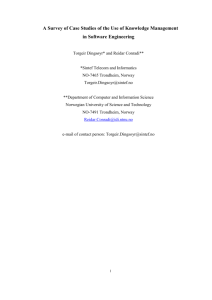Human resource management: a case study approach
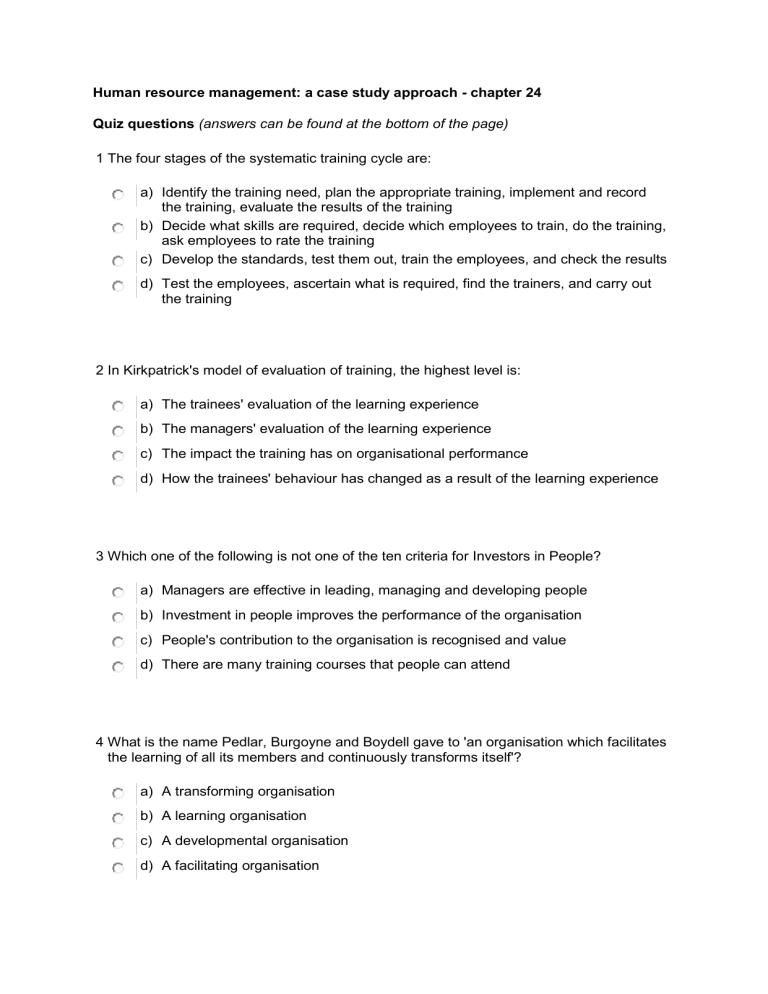
Human resource management: a case study approach - chapter 24
Quiz questions (answers can be found at the bottom of the page)
1 The four stages of the systematic training cycle are: a) Identify the training need, plan the appropriate training, implement and record the training, evaluate the results of the training b) Decide what skills are required, decide which employees to train, do the training, ask employees to rate the training c) Develop the standards, test them out, train the employees, and check the results d) Test the employees, ascertain what is required, find the trainers, and carry out the training
2 In Kirkpatrick's model of evaluation of training, the highest level is: a) The trainees' evaluation of the learning experience b) The managers' evaluation of the learning experience c) The impact the training has on organisational performance d) How the trainees' behaviour has changed as a result of the learning experience
3 Which one of the following is not one of the ten criteria for Investors in People? a) Managers are effective in leading, managing and developing people b) Investment in people improves the performance of the organisation c) People's contribution to the organisation is recognised and value d) There are many training courses that people can attend
4 What is the name Pedlar, Burgoyne and Boydell gave to 'an organisation which facilitates the learning of all its members and continuously transforms itself'? a) A transforming organisation b) A learning organisation c) A developmental organisation d) A facilitating organisation
5 What is the task of knowledge management? a) To explore tacit knowledge that is subjective and personal b) To understand the relationship between human capital and structural capital c) To help individuals and organisations make explicit what they know and to share it with others d) To facilitate the sharing knowledge by means of 'wikis'
6 Which of the following descriptions of 'communities of practice' is untrue? a) They are meetings where knowledge is shared b) They identify good practice c) They encourage staff to reflect on their practices d) They are a popular type of training course
Quiz answers
1.a. 2.c. 3.d. 4.b. 5.c. 6.d.






